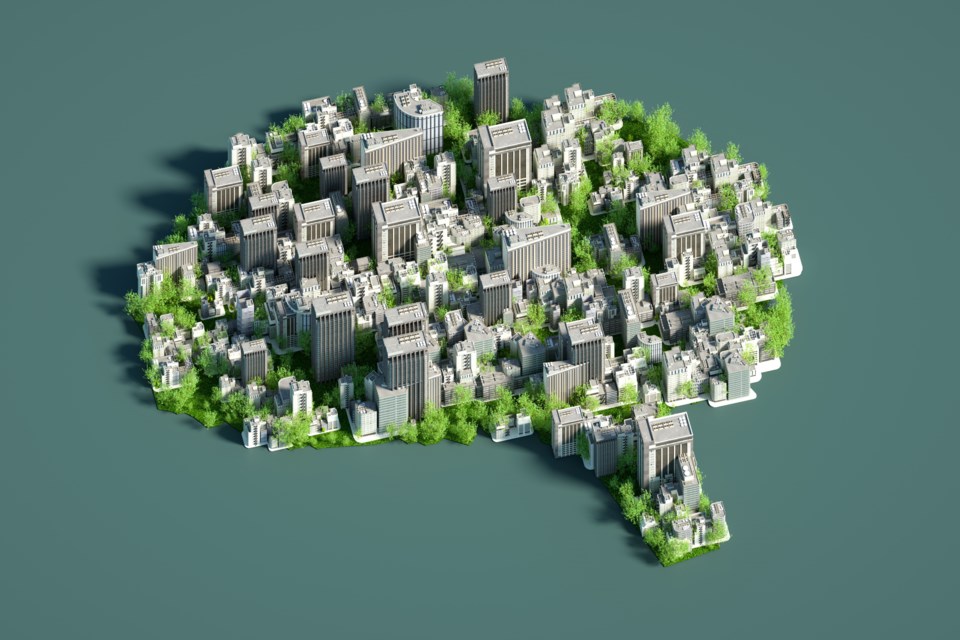According to the 2021 census, the population of Whistler is 13,982, which I feel we can safely round up to 14,000 by now. That number doesn’t include second-homeowners who can spend more time here than their primary homes or the thousands of seasonal and temporary workers that pass through.
When the town of Salmon Arm reached 15,000, they were officially incorporated as a city, although you can apparently qualify with as few as 5,000 people. The City of Fernie has a population of just 6,320.
Meanwhile, Whistler has been building a “resort municipality” with capacity for more than 62,000, which would make it bigger than the City of Vernon, and is under constant pressure to go even bigger with more housing for employees, seniors and the market—and often all three in the same rezoning application.
Nobody even talks about the bed unit cap anymore, the not-so-hard limit on development the resort once set to try to preserve something of our unique mountain town—emphasis on town—feel. But Tiny Town, as G.D. Maxwell often calls it, is not so tiny anymore.
While there are lots of good reasons to stay small—like the one busy highway in and out, our insanely long and energy-consuming winters, the diminishing quality of the natural experience, the insanity of our powder day lift lines, the mobs at our local parks in the summer, and the effect of all this growth on the visitors that still prop up our economy—the “small” ship sailed years ago. We’re a city in denial.
But if we are building a city, and the numbers say we are, then it’s time to figure out what kind of a city we want to be. There’s a lot more to it than building houses.
On the practical side, we need to give serious thought to essential services. We have a critical doctor shortage and just one clinic, down from four clinics a few years ago. Our health-care centre is also small, doesn’t run 24 hours or allow for overnight stays, and can’t offer things like routine surgeries.
Our schools are increasingly crowded. Every new development is accompanied by a baby boom (it’s amazing what secure jobs and housing will do for your birth rate), and right now we’re seeing the effect of two new neighbourhoods in Cheakamus Crossing and Rainbow. If we stopped building tomorrow then we could probably muddle through with the spaces we have, but we’re doing the opposite. Plans for a new middle school might be worth dusting off.
Recreationally, Meadow Park Sport Centre was built for a much smaller town and is inconvenient for people living south of the village. Whistler really could use a second community centre and a second sheet of ice, as well as another pool with more for people to do. Sechelt has a population of just over 10,000 and has an amazing swimming facility with a waterslide, a longer lazy river, a climbing wall, a rope swing and diving boards. The City of Powell River, which has a slightly smaller full-time population than Whistler, has two NHL-sized rinks, one of them with seating for 1,700. Imagine if Whistler had that along with its own BCHL team.
It has been estimated that Whistler has at least 30,000 people in the resort at any given time, including second-homeowners, workers and guests, which means we need recreational facilities on par with a small city like Mission. For example, given our growing senior population and the need for activities, it might be time to think about a curling rink.
And do we really need three golf courses that take five hours and a minimum $100 to play? What if half of one of the courses was turned into an 18-hole, par-three executive course you could hack your way through in two hours while the other half was used for other outdoor activities?
When it comes to nightlife, Whistler has always had a challenge maintaining a variety of things to do. That’s excusable for a small town but unthinkable for a city. Whistler could use a bowling alley, a pool hall, an arcade, some family-friendly indoor activities like laser tag, and a venue that could host larger musical acts and cultural events. There was a time when the Whistler Conference Centre hosted concerts somewhat regularly, but it’s been a long while since The String Cheese Incident played the big room—or any musical act that wasn’t brought here as part of a private event.
The retail experience is also somewhat lacking for a city and there are all kinds of things you either can’t buy here or have limited choice.
Take marijuana. I hate to harp on it again (this is the third column in which I’ve mentioned it), but Whistler is one of a handful of communities in B.C. that has yet to write a bylaw to allow marijuana sales, three and a half years after legalization. Stephen King has published three novels since then—I’m just saying.
I didn’t personally plan on moving to a city, having left one that got too big for me, but here we are. There’s no going back now, so I say let’s make the best of it.




